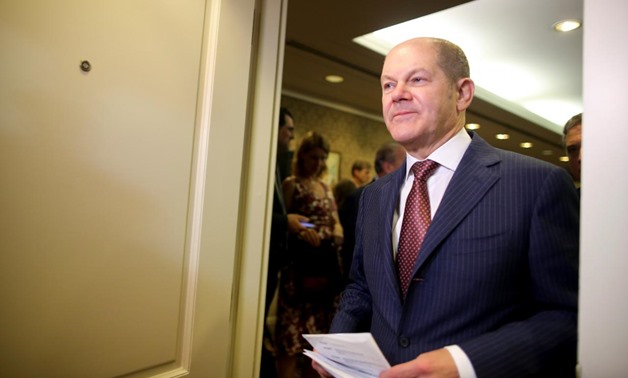
Germany's Finance Minister Olaf Scholz leaves a news conference during the 2018 G20 Conference entitled "The G20 Agenda Under the Argentine Presidency", in Buenos Aires, Argentina, March 18, 2018. REUTERS/Agustin Marcarian
FRANKFURT - 9 June 2018: German Finance Minister Olaf Scholz said on Friday that businesses readying for Brexit should prepare for a worst-case scenario even though there was "no guarantee" of a final deal being reached between Britain and European Union.
A tentative deal to manage Britain's transition out of the common market had been reached in March, but this still hinges on a final overall agreement being reached with the EU, Scholz warned.
"There is no guarantee that this overall agreement will be reached, though we are working hard on it, as there are still open questions, including the question of a custom border between Ireland and Northern Ireland, that need to be solved," Scholz told a Goldman Sachs conference in Frankfurt, Germany.
"Companies are well advised to prepare for the worst-case scenario as well," Scholz said.
His choice come after remarks by Britain's foreign minister Boris Johnson, reported by Buzzfeed on Thursday, in which he said there could be a Brexit meltdown but that it would be "all right in the end".
He said Prime Minister Theresa May was beginning to take a harder line but that there would be a need for level-headedness as talks became more difficult in the months ahead.
Scholz backed EU proposals that could require some financial businesses to move out of London if financial stability was put at risk, particularly in the case of euro-denominated clearing.
"Financial stability considerations may even require a relocation of business from the U.K. into the EU 27. This is especially relevant for the clearing of euro derivatives," Scholz told the conference.
Clearing houses, also known as central counterparties, sit between two sides of a financial trade to ensure the transaction can be completed.
Euro clearing is one of the main battlegrounds between London and Brussels in divorce talks that will shape how Europe's financial market is divided up when Britain leaves the European Union.
European regulators including the European Central Bank have wanted more control over euro clearing.
"To minimise risk for financial stability it is indispensable that such clearing is subject to strong regulation and supervision and in full conformity with EU standards," he said.

Comments
Leave a Comment